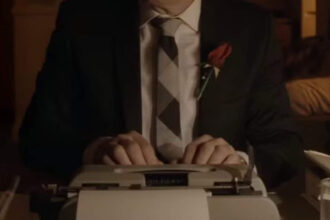

The Office of the Special Prosecutor (OSP) has cleared former President John Mahama of any corruption and wrongdoing following its investigations into the Airbus SE scandal which began in February 2020.
Speaking to journalists on Thursday, August 8, 2024, the Special Prosecutor, Kissi Agyebeng, said after his investigations, he could establish no evidence to suggest that John Mahama or any other public official received bribes. Airbus SE wine.
Therefore, the OSP found no evidence to suggest that Samuel Adam Foster, also known as Samuel Adam Mahama, Philip Shun Middlemerth and Lean Sarah Davies acted as corrupt intermediaries between Airbus employees and the former President John Mahama or any other public official.
Furthermore, the OSP found no evidence to suggest that Samuel Adam Mahama, Philip Shun Middlerts and Lean Sarah Davies received payments from Airbus with the intention of corrupting former President John Dramani Mahama or any other public official .
Furthermore, OSP found no evidence to suggest that former President John Mahama or any other public official received bribes from Samuel Adam Foster, also known as Samuel Adam Mahama , Philip Shun Middlemerth and Lean Sarah Davies, in relation to the Government of Ghana's purchase of Airbus military transport aircraft,” he noted.
John Dramani Mahama, former president and now flagbearer of the National Democratic Congress (NDC), was vice president at the time of the incident.
CONTEXT SEARCH
The collapse of the Airbus corruption scandal
Ghana has purchased three military planes – C295s – from Airbus. The country received its first C295 in November 2011. The second aircraft was received in April 2012 and the third in November 2015.
John Dramani Mahama, former president and now flagbearer of the National Democratic Congress (NDC), was vice president at the time of the incident.
The agreements which concerned them were then considered to be in accordance with the 2009-2012 strategic plan of the Ghanaian armed forces.
The three purchases, approved by the Ghanaian Parliament after heated disagreements, were clearly presented by the government of the day as an initiative to modernize the Ghanaian Air Force.
Financing for the purchase of aircraft
Funding for the first two C295s came from a €60,034,636 loan from Deutsche Bank SAE.
An additional loan of €11,750,000 million from Fidelity Bank Ghana Limited was also approved by Parliament during the period for the procurement of two DA42 MPP Guardian surveillance aircraft for the Ghana Air Force. Ghana.
The House also approved a total loan of $105,370,177.09 from the Brazilian Development Bank (BNDES) for the purchase of an Embraer E190 jet for the country. The Embraer deal was to cover associated spare parts, relevant accessories as well as the construction of an aircraft hangar large enough to accommodate three large aircraft.
Before the parliamentary approval of the loan agreements, Minority Leader Osei Kyei-Mensah-Bonsu had described the agreements as dubious and non-transparent, adding that the contract amounts had been increased by the government.
He presented figures obtained from the Internet to support his claims, but was scorned for simply relying on Google to make such serious allegations of wrongdoing.
One of the C295s acquired under this agreement supported United Nations-led missions in Mali. The remainder was purchased, as the government explained at the time, to support the strategic operations of the Ghana Air Force, including surveillance of the country's offshore oil production fields, border patrol , pilot training and internal troop transport.
In November 2014, President John Mahama announced that Ghana planned to acquire more military equipment, including five Super Tucanos, Mi-17s and four Z-9s, for the Ghana Air Force.
At the time, Ghanaian troops were largely dependent on civilian flights for travel and needed military aircraft to correct this anomaly. Despite criticism from the opposition, the government concluded the purchase agreements.
British court judgment
The recent judgment at England's Crown Court in Southwark appears to have breathed new life into earlier suspicions that the deals covering the C295s in particular were corrupt. The January 21, 2020 decision approved a deferred prosecution agreement (DPA) between the Serious Fraud Office and Airbus SE, a subsidiary of Airbus, after investigations revealed massive corruption scandals involving the aircraft manufacturer in violation of the Bribery Act 2010.
English law allows the SFO to defer prosecution of an organization based on an agreement between the SFO and one or more companies suspected of committing economic crimes.
Such an agreement – (DPA) – requires a judicial stamp of approval to become legal and may even allow the offending institution to avoid prosecution altogether.
The court, in deciding such applications, considers, among other things, whether or not the DPA before it is in the public interest.
Additionally, the terms of the agreement must be fair, reasonable and proportionate.
In the present case, the court found that the DPA was in the public interest and that the conditions met the criteria of fairness, reasonableness and proportionality.
The court found that suing Airbus now would, among other things, lead to massive job losses and decimate the company's stock performance in the short and long term.
Independent estimates suggest Airbus could easily lose some £200 billion in the long term if it were prosecuted immediately.
The judgment says SFO investigations revealed that Airbus – which has since agreed to pay more than £3 billion in fines – had engaged in schemes involving corruption to secure lucrative contracts in countries including Malaysia, Sri Lanka, Taiwan, Indonesia and Ghana.
French and U.S. authorities have also found similar evidence of alleged corruption involving Airbus officials and/or their agents in other countries, including Russia and China.
In the case of Ghana, the Crown Court judgment highlights instances where Airbus officials, as part of a scheme to obtain and/or retain government contracts, bribed or agreed to bribe intermediaries with close ties to a senior state official. would have had an influence on the country's aircraft purchase plans between 2011 and 2015.
Court documents do not mention any names, but the time period listed in the judgment covers some periods of the Mills-Mahama era.
The first bribe payment arrangement in Ghana involved some €5 million, disguised as a commission to a middleman – “Middleman 5” – hired by Airbus to promote its proposal to sell two C295 aircraft to Ghana. Finally, due process tests were carried out. revealed the questionable arrangements and no money was paid.
Ultimately, due process tests revealed the dubious arrangements and no money was paid.
Subsequent efforts by Airbus were successful, leading to Ghana purchasing 3 C259 aircraft at different times through the multinational's Spanish defense subsidiaries.
The transactions were concluded through a number of intermediaries led by “Intermediary 5”, believed to be an unnamed relative of a powerful Ghanaian official who, at the material time, held a decision-making position regarding the proposed aircraft purchase agreements.
However, after an internal investigation revealed the connection between Intermediary 5 and the unnamed senior Ghanaian government official, the parties then hatched a plan to route the transaction through a third-party trading company. Spanish origin, with which this company had no previous relationship. Ghana.
The Spanish company was presented as having facilitated the proposed aircraft purchase deals, when in reality it was simply inserted into the arrangements to circumvent due diligence requirements in order to give the dodgy transaction a clean bill of health. In entering into the Ghana deal, under which two planes were initially sold, Airbus or its agents relied on false statements and documents to pay bribes of close to of 4 million euros to the Spanish third-party company which, in turn, routed the payments to an intermediary 5. .
The payments were disguised as commission on the contract amount. The Spanish third-party company withdrew from a subsequent deal that gave Ghana its third C259 aircraft. This was after Airbus hired an external advisor to carry out due diligence on the matter. Intermediary 5's subsequent claim that Airbus owed it approximately €1.6 million under the third C295 deal was not honored.
The DPA does not mean that Airbus and its officials are immune from prosecution for the alleged crimes.
Under English law, the SFO has the right, in due course, to pursue Airbus if it is satisfied that the company has failed to comply with the terms of the DPA approved by the Court.
Indeed, the ongoing investigations mean that although the SFO, in light of Airbus' cooperation so far, may forgo pursuing the aircraft manufacturer, it may, after the investigation, pursue criminal charges against the persons who actually paid or received the bribes reported.
Such a move will likely include intermediaries in Ghana and related persons. In such a case, the SFO may rely on the mutual legal assistance (MLA) provisions of English law to mount the relevant charges.
DISCLAIMER: The views, comments, opinions, contributions and statements made by readers and contributors on this page do not necessarily characterize the views or policies of LamarBlogspot. Please notify us of any inappropriate content so that we can prioritize it for evaluation.
#Lamarblogspot
Africa,National Topic,Politics,Airbus Scandal,John Dramani Mahama,NDC,OSP ,











